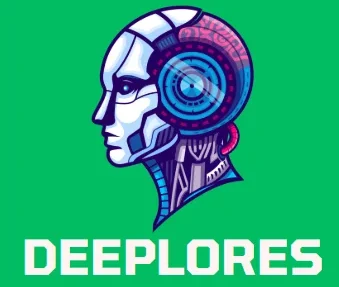Blockchain Voting: A Game-Changer for Democracy
In the landscape of modern democracy, the quest for secure, transparent, and accessible voting systems has been ongoing. With the advent of blockchain technology, the possibility of revolutionizing traditional voting methods has emerged. Blockchain, renowned for its decentralized and tamper-resistant nature, presents an opportunity to overhaul the voting process, ensuring trust, integrity, and inclusivity. This article explores the transformative potential of blockchain in the realm of voting, elucidating its benefits, challenges, and implications for the future of democracy. For further insights into blockchain’s impact on voting, readers can explore detailed analyses at cryptonewzhub.com.
The Evolution of Voting Systems
From paper-based ballots to electronic voting machines, the methods of casting votes have evolved over time. However, each system has been plagued by its own set of challenges, ranging from logistical issues to concerns regarding security and transparency. Traditional voting systems often lack robust mechanisms for verifying the integrity of election results, leaving room for manipulation and fraud. Moreover, these systems may disenfranchise certain segments of the population, such as remote voters or individuals without access to polling stations.
Blockchain: The Foundation of Trust
At the core of blockchain voting lies the principle of decentralization. Unlike centralized voting systems, where authority is vested in a single entity, blockchain distributes control across a network of nodes. This decentralized architecture ensures that no single entity can manipulate the outcome of an election, thereby enhancing trust and transparency. Moreover, blockchain employs cryptographic techniques to secure transactions, making it exceedingly difficult for malicious actors to tamper with the voting process.
Enhancing Transparency through Immutable Records
One of the key features of blockchain technology is its immutability. Once a transaction is recorded on the blockchain, it cannot be altered or deleted. This property is particularly advantageous in the context of voting, as it enables the creation of a transparent and tamper-proof ledger of election results. By storing votes on a public blockchain, stakeholders can verify the integrity of the electoral process, mitigating concerns regarding fraud and manipulation. Additionally, the use of blockchain facilitates real-time auditing, allowing election officials to monitor voting activity in a secure and efficient manner.
Ensuring Accessibility for All
Another compelling aspect of blockchain voting is its potential to enhance accessibility. Traditional voting methods often present barriers to certain demographics, such as individuals with disabilities or those residing in remote areas. Blockchain technology has the capability to overcome these barriers by enabling remote and mobile voting solutions. Through the use of secure digital identities and encrypted channels, voters can cast their ballots from anywhere in the world, thereby expanding participation and inclusivity in the electoral process.
Challenges and Considerations
While blockchain voting holds immense promise, it is not without its challenges and considerations. One of the primary concerns is the issue of identity verification. Ensuring that only eligible voters participate in an election is crucial for maintaining the integrity of the process. Blockchain-based solutions must implement robust identity management protocols to prevent identity theft and fraud. Additionally, the scalability of blockchain poses a significant hurdle, as current systems may struggle to handle the volume of transactions associated with large-scale elections. Addressing these technical challenges will be essential for the widespread adoption of blockchain voting.
Regulatory and Legal Implications
The adoption of blockchain voting also raises important regulatory and legal considerations. Governments must navigate existing electoral laws and regulations to integrate blockchain technology into the voting process. Furthermore, the decentralized nature of blockchain complicates jurisdictional issues, as voting systems may operate across international borders. Developing clear and comprehensive regulatory frameworks will be essential for ensuring the integrity and legitimacy of blockchain-based elections.
The Future of Democracy
As blockchain technology continues to mature, its potential to transform democracy becomes increasingly evident. By providing a secure, transparent, and accessible voting infrastructure, blockchain has the power to reinvigorate trust in electoral processes around the globe. However, realizing this vision will require collaboration between technologists, policymakers, and stakeholders to overcome technical, regulatory, and social challenges. Ultimately, blockchain voting represents a paradigm shift in the way we conceive of democracy, offering a path towards a more inclusive and resilient electoral system.
Conclusion
Blockchain voting has the potential to revolutionize democracy by providing a secure, transparent, and accessible voting infrastructure. By leveraging the decentralized nature of blockchain technology, governments can enhance trust and integrity in electoral processes, while also expanding participation and inclusivity. However, realizing this vision will require addressing technical, regulatory, and social challenges, as well as fostering collaboration between stakeholders. Despite these hurdles, the transformative potential of blockchain voting offers hope for a more democratic future.







